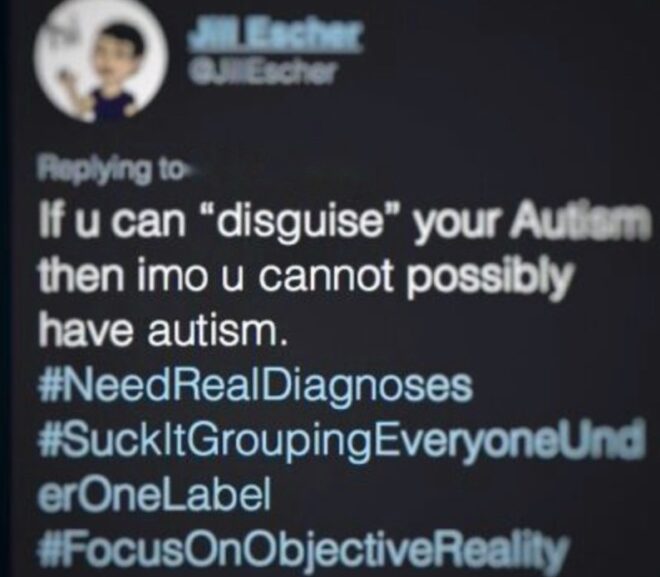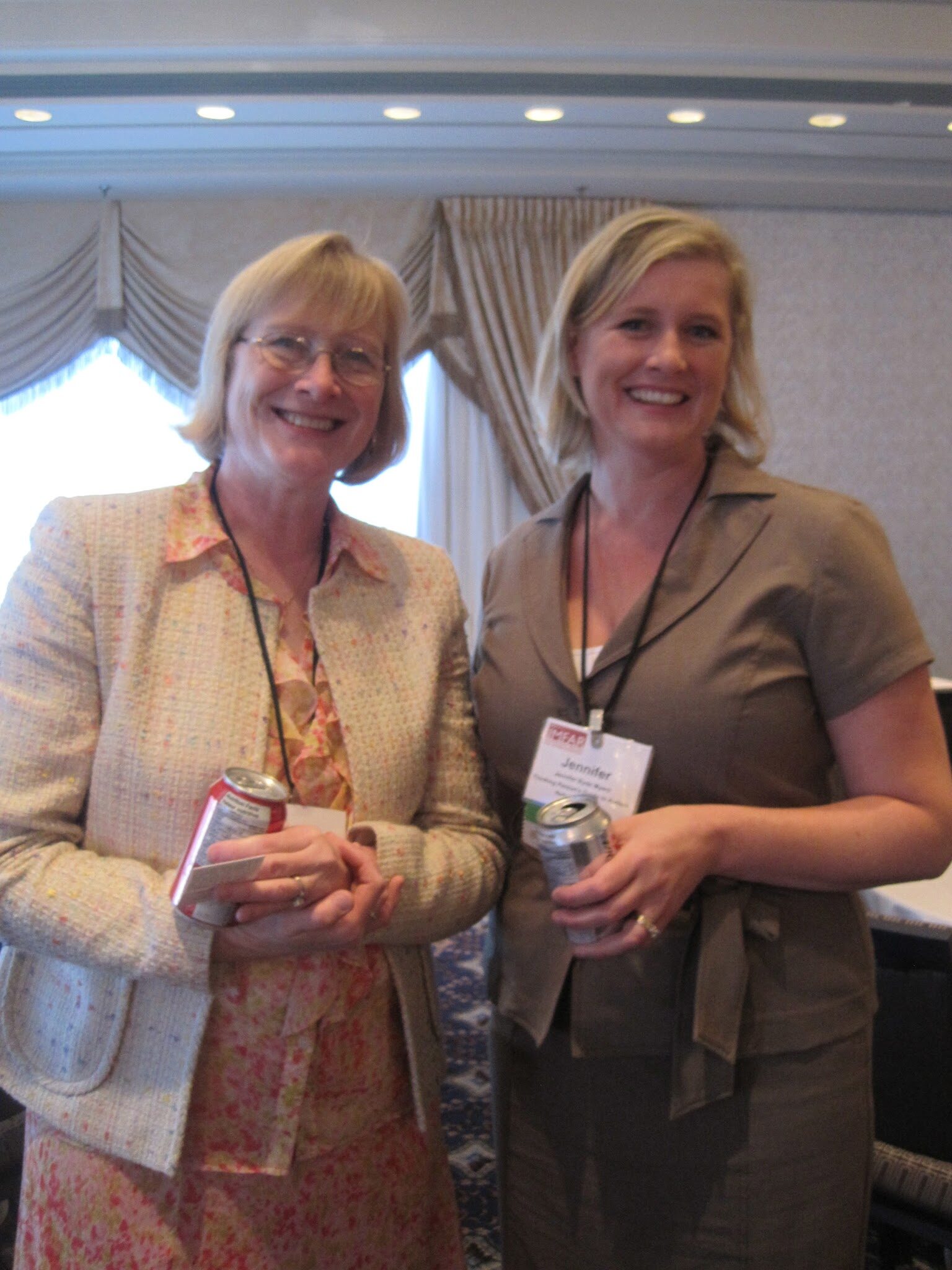It’s not okay to dismiss one autistic person’s lived experience as having nothing to do with “real” autism simply because you don’t understand what autism is like for them.
Tag: DSM-5
Emily Willingham www.emilywillinghamphd.com When news broke that the autism spectrum categories of Asperger’s disorder and Pervasive Developmental Disorder-Not Otherwise Specified (PDD-NOS) would get subsumed into the wider maw of a general “autism disorder,” people worried. They worried about autistic people who are quite verbal or who have typical cognitive skills. What would happen to individuals whose autism doesn’t manifest in those terms as profound? The biggest concern was a new category for the Diagnostic and Statistical Manual of Mental Disorders (DSM)-5, social communication disorder. Would people like my son, diagnosed with Asperger’s and whose autism includes echolalia, anxiety, motor deficits, repetitive behaviors, learning differences, and other features well beyond the social, get rolled into what looks like a flimsy, catchall not-safety net of “social communication disorders”? And what other kind of communication is there if not social? Based on early reports, the concerns were legit. One alarming presentation at a…
The Autistic Self-Advocacy Network’s Ari Ne’eman and Steven Kapp have released a policy brief: What Are the Stakes? An Analysis of the Impact of the DSM-5 Draft Autism Criteria on Law, Policy and Service Provision [PDF]. The full PDF brief can be found at bit.ly/DSM-5, and “…summarizes the legal and policy details of the program under discussion and attempts to identify the likely implications of the DSM-5’s outlined changes in the criteria for Autism Spectrum Disorder on eligibility, benefits, and access to services and legal rights.” The legal and policy areas in question are described, then followed by analyses of the proposed DSM-5 changes’ implications: Individuals with Disabilities Education Act (eligibility criteria) Impact of DSM-5 Shifts on Students with Disabilities Receiving Services Under IDEA ADA/504 Accommodations (guaranteeing non-discrimination re: disability in schools and in the workplace) Impact of DSM-5 Shifts on ADA/504 Protections Medicaid-Funded Developmental Disability Services Impact of the…
Sue Swedo M.D. Chair, DSM-5 Neurodevelopmental Disorders Workgroup An Update on the DSM-5 Recommendations for Autism Spectrum Disorder and Other Neurodevelopmental Disorders We spoke with Sue at length both at the IMFAR Stakeholder’s lunch, and after her IMFAR talk. Any errors or omissions in this summary of her talk are on TPGA. -SR —- The goal of the new DSM-5 is clearer criteria, changing all PDDs (Pervasive Developmental Disorders) to ASDs (Autism Spectrum Disorders). This is group’s thoughts on what they are and are not concerned about. In addition to 11 full time members of DSM 5 task force, they have 2 dozen advisors. It’s been a five-year process. She’s deeply appreciative to all of her colleagues. They never expected to be making headlines, the DSM is a bit dry if you sit down and read it. They were shocked when the headlines became about stealing services from 2/3 of…
Charli Devnet Charli writes: In view of the firestorm surrounding the proposed changes to the DSM-V criteria for the diagnosis of autism spectrum disorder, an open debate on the nature and scope of autism and what it means to be autistic might be in order. —- I’m not an expert, but I am autistic. All my life I searched for the answer to a seemingly inexplicable riddle, “Just what is wrong with me?” At the age of 54, I was diagnosed with Asperger syndrome. The diagnosis, when I finally acquired one, was not a surprise, not to me nor to anyone who had known me for any significant time. I’m far from a borderline case. No one came up to me and said, “You? We just cannot believe it!” Instead, a number of people greeted my disclosure with the response, “We thought so all along.” Not content to simply have…
Interview with Dr. Gil Tippy Clinical Director of The Rebecca School, Manhattan, New York www.drgiltippy.com How are the DSM criteria for autism changing? From the official site: “A single spectrum disorder [i.e., folding in Asperger Disorder and PDD-NOS] is a better reflection of the state of knowledge about pathology and clinical presentation; previously, the criteria were equivalent to trying to “cleave meatloaf at the joints.” “Three domains become two: 1) Social/communication deficits 2) Fixated interests and repetitive behaviors “[because] Deficits in communication and social behaviors are inseparable and more accurately considered as a single set of symptoms with contextual and environmental specificities.” We spoke with Dr. Tippy about what the proposed revisions to the DSM 5 will mean for Autistics, autism families, and autism professionals. Dr. Tippy also outlined actions everyone in the autism communities can take to prevent these changes from cutting off critical autism services and support. Why…

